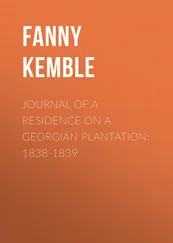Fanny Kemble - Records of a Girlhood
Здесь есть возможность читать онлайн «Fanny Kemble - Records of a Girlhood» — ознакомительный отрывок электронной книги совершенно бесплатно, а после прочтения отрывка купить полную версию. В некоторых случаях можно слушать аудио, скачать через торрент в формате fb2 и присутствует краткое содержание. Жанр: foreign_prose, foreign_antique, на английском языке. Описание произведения, (предисловие) а так же отзывы посетителей доступны на портале библиотеки ЛибКат.
- Название:Records of a Girlhood
- Автор:
- Жанр:
- Год:неизвестен
- ISBN:нет данных
- Рейтинг книги:4 / 5. Голосов: 1
-
Избранное:Добавить в избранное
- Отзывы:
-
Ваша оценка:
- 80
- 1
- 2
- 3
- 4
- 5
Records of a Girlhood: краткое содержание, описание и аннотация
Предлагаем к чтению аннотацию, описание, краткое содержание или предисловие (зависит от того, что написал сам автор книги «Records of a Girlhood»). Если вы не нашли необходимую информацию о книге — напишите в комментариях, мы постараемся отыскать её.
Records of a Girlhood — читать онлайн ознакомительный отрывок
Ниже представлен текст книги, разбитый по страницам. Система сохранения места последней прочитанной страницы, позволяет с удобством читать онлайн бесплатно книгу «Records of a Girlhood», без необходимости каждый раз заново искать на чём Вы остановились. Поставьте закладку, и сможете в любой момент перейти на страницу, на которой закончили чтение.
Интервал:
Закладка:
My father, who loved me very much, and spoiled me not a little, carried me early in the afternoon into the market-place, and showed me the dense mass of people which filled the whole Piazza, in patient expectation of admission to the still unopened doors. This was by way of proving to me how impossible it was to grant my request. However that might then appear, it was granted, for I was in the theatre at the beginning of the performance; but I can now remember nothing of it but the appearance of a solemn female figure in black, and the tremendous roar of public greeting which welcomed her, and must, I suppose, have terrified my childish senses, by the impression I still retain of it; and this is the only occasion on which I saw my aunt in public.
Another circumstance, connected in my mind with Covent Garden Chambers, was a terrible anguish about my youngest brother, Henry, who was for some hours lost. He was a most beautiful child, of little more than three years old, and had been allowed to go out on the door-steps, by an exceedingly foolish little nursery-maid, to look at the traffic of the great market-place. Returning without him, she declared that he had refused to come in with her, and had run to the corner of Henrietta Street, as she averred, where she had left him, to come and fetch authoritative assistance.
The child did not come home, and all search for him proved vain throughout the crowded market and the adjoining thoroughfares, thronged with people and choked with carts and wagons, and swarming with the blocked-up traffic, which had to make its way to and from the great mart through avenues far narrower and more difficult of access than they are now. There were not then, either, those invaluable beings, policemen, standing at every corner to enforce order and assist the helpless. These then were not; and no inquiry brought back any tidings of the poor little lost boy. My mother was ill, and I do not think she was told of the child's disappearance, but my father went to and fro with the face and voice of a distracted man; and I well remember the look with which he climbed a narrow outside stair leading only to a rain-water cistern, with the miserable apprehension that his child might have clambered up and fallen into it. The neighborhood was stirred with sympathy for the agony of the poor father, and pitying gossip spreading the news through the thronged market-place, where my father's name and appearance were familiar enough to give a strong personal feeling to the compassion expressed. A baker's boy, lounging about, caught up the story of the lost child, and described having seen a "pretty little chap with curly hair, in a brown holland pinafore," in St. James's Square. Thither the searchers flew, and the child was found, tired out with his self-directed wandering, but apparently quite contented, fast asleep on the door-step of one of the lordly houses of that aristocratic square. He was so remarkably beautiful that he must have attracted attention before long, and might perhaps have been restored to his home; but God knows what an age of horror and anguish was lived through by my father and my poor aunt Dall in that short, miserable space of time till he was found.
My aunt Dall, of whom I now speak for the first time, was my mother's sister, and had lived with us, I believe, ever since I was born. Her name was Adelaide, but the little fellow whose adventure I have just related, stumbling over this fine Norman appellation, turned it into Idallidy, and then conveniently shortened it of its two extremities and made it Dall, by which title she was called by us, and known to all our friends, and beloved by all who ever spoke or heard it. Her story was as sad a one as could well be; yet to my thinking she was one of the happiest persons I have ever known, as well as one of the best. She was my mother's second sister, and as her picture, taken when she was twenty, shows (and it was corroborated by her appearance till upward of fifty), she was extremely pretty. Obliged, as all the rest of her family were, to earn her own bread, and naturally adopting the means of doing so that they did, she went upon the stage; but I can not conceive that her nature can ever have had any affinity with her occupation. She had a robust and rather prosaic common-sense, opposed to any thing exaggerated or sentimental, which gave her an excellent judgment of character and conduct, a strong genial vein of humor which very often made her repartees witty as well as wise, and a sunny sweetness of temper and soundness of moral nature that made her as good as she was easy and delightful to live with. Whenever any thing went wrong, and she was "vexed past her patience," she used to sing; it was the only indication by which we ever knew that she was what is termed "out of sorts." She had found employment in her profession under the kindly protection of Mr. Stephen Kemble, my father's brother, who lived for many years at Durham, and was the manager of the theatre there, and, according to the fashion of that time, traveled with his company, at stated seasons, to Newcastle, Sunderland, and other places, which formed a sort of theatrical circuit in the northern counties, throughout which he was well known and generally respected.
In his company my aunt Dall found employment, and in his daughter, Fanny Kemble, since well known as Mrs. Robert Arkwright, an inseparable friend and companion. My aunt lived with Mr. and Mrs. Stephen Kemble, who were excellent, worthy people. They took good care of the two young girls under their charge, this linsey-woolsey Rosalind and Celia—their own beautiful and most rarely endowed daughter, and her light-hearted, lively companion; and I suppose that a merrier life than that of these lasses, in the midst of their quaint theatrical tasks and homely household duties, was seldom led by two girls in any sphere of life. They learned and acted their parts, devised and executed, with small means and great industry, their dresses; made pies and puddings, and patched and darned, in the morning, and by dint of paste and rouge became heroines in the evening; and withal were well-conducted, good young things, full of the irrepressible spirits of their age, and turning alike their hard home work and light stage labor into fun. Fanny had inherited the beauty of her father's family, which in her most lovely countenance had a character of childlike simplicity and serene sweetness that made it almost angelic.
Far on in middle age she retained this singularly tender beauty, which added immensely to the exquisite effect of her pathetic voice in her incomparable rendering of the ballads she composed (the poetry as well as the music being often her own), and to which her singing of them gave so great a fashion at one time in the great London world. It was in vain that far better musicians, with far finer voices, attempted to copy her inimitable musical recitation; nobody ever sang like her, and still less did anybody ever look like her while she sang. Practical jokes of very doubtful taste were the fashion of that day, and remembering what wonderfully coarse and silly proceedings were then thought highly diverting by "vastly genteel" people, it is not, perhaps, much to be wondered at that so poor a piece of wit as this should have furnished diversion to a couple of light-hearted girls, with no special pretensions to elegance or education. Once they were driving together in a post-chaise on the road to Newcastle, and my aunt, having at hand in a box part of a military equipment intended for some farce, accoutred her upper woman in a soldier's cap, stock, and jacket, and, with heavily corked mustaches, persisted in embracing her companion, whose frantic resistance, screams of laughter, and besmirched cheeks, elicited comments of boundless amazement, in broad north-country dialect, from the market folk they passed on the road, to whom they must have appeared the most violent runaway couple that ever traveled.
Читать дальшеИнтервал:
Закладка:
Похожие книги на «Records of a Girlhood»
Представляем Вашему вниманию похожие книги на «Records of a Girlhood» списком для выбора. Мы отобрали схожую по названию и смыслу литературу в надежде предоставить читателям больше вариантов отыскать новые, интересные, ещё непрочитанные произведения.
Обсуждение, отзывы о книге «Records of a Girlhood» и просто собственные мнения читателей. Оставьте ваши комментарии, напишите, что Вы думаете о произведении, его смысле или главных героях. Укажите что конкретно понравилось, а что нет, и почему Вы так считаете.












